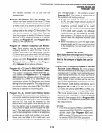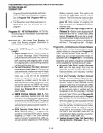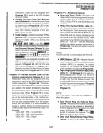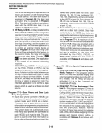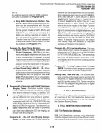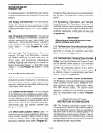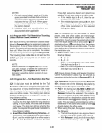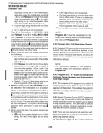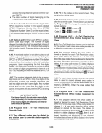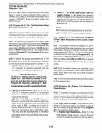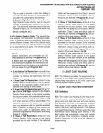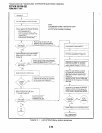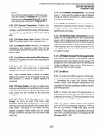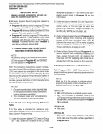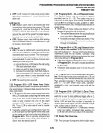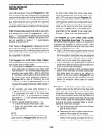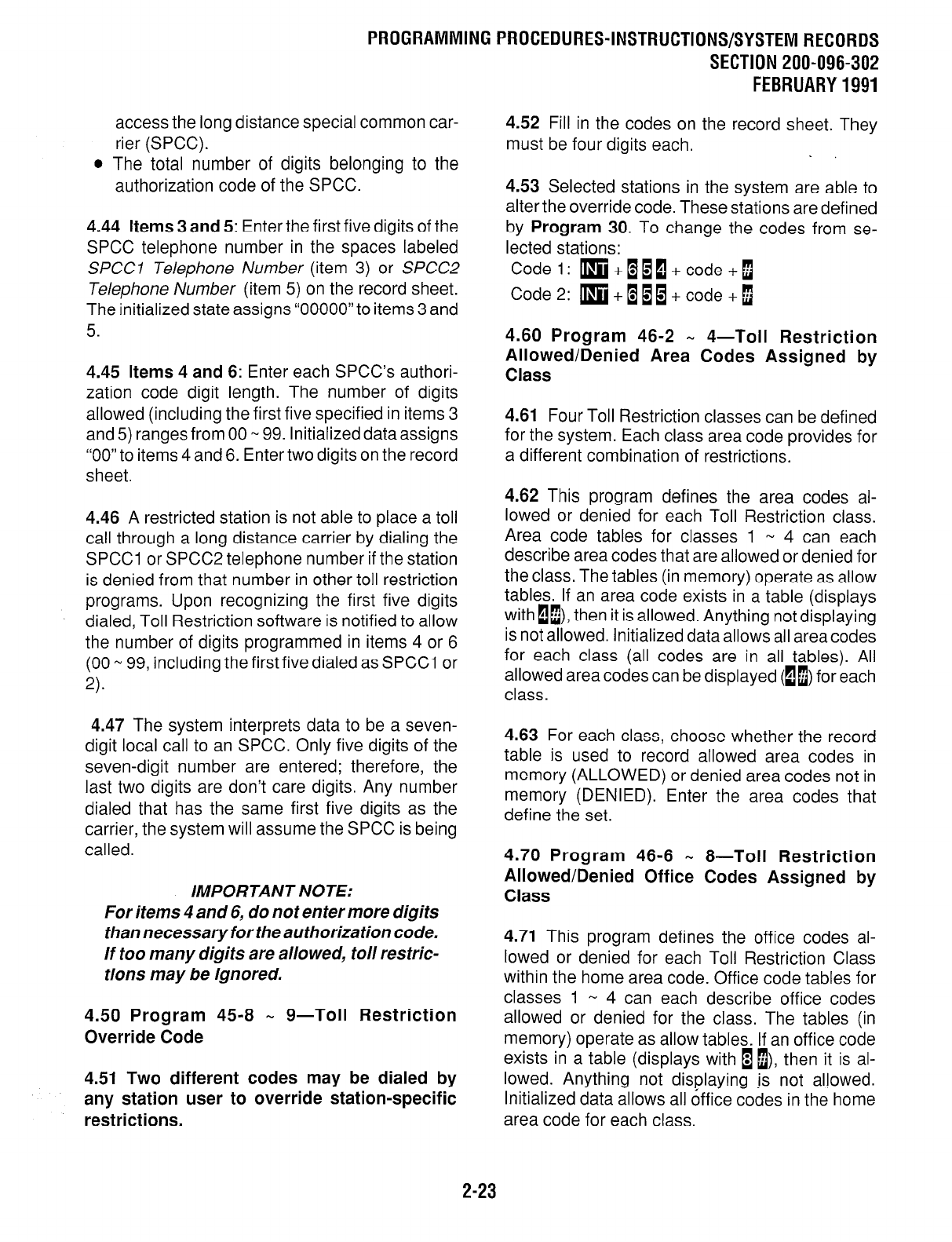
access the long distance special common car-
rier (SPCC).
l
The total number of digits belonging to the
authorization code of the SPCC.
4.44
Items
3
and
5: Enter the first five digits of the
SPCC telephone number in the spaces labeled
SPCCl Telephone Number (item 3) or SPCCZ
Telephone Number (item 5) on the record sheet.
The initialized state assigns “00000” to items 3 and
5.
4.45
Items 4 and
6: Enter each SPCC’s authori-
zation code digit length. The number of digits
allowed (including the first five specified in items 3
and 5) ranges from 00 - 99. Initialized data assigns
“00” to items 4 and 6. Enter two digits on the record
sheet.
4.46 A restricted station is not able to place a toll
call through a long distance carrier by dialing the
SPCCI or SPCC2 telephone number if the station
is denied from that number in other toll restriction
programs. Upon recognizing the first five digits
dialed, Toll Restriction software is notified to allow
the number of digits programmed in items 4 or 6
(00 N 99, including the first five dialed as SPCCI or
2).
4.47 The system interprets data to be a seven-
digit local call to an SPCC. Only five digits of the
seven-digit number are entered; therefore, the
last two digits are don’t care digits. Any number
dialed that has the same first five digits as the
carrier, the system will assume the SPCC is being
called.
IMPORTANT NOTE:
For items 4 and 6, do not enter more digits
than necessary for the authorization code.
If too many digits are allowed, toll restric-
tions may be ignored.
4.50 Program 45-8 ,- g--Toll Restriction
Override Code
4.51 Two different codes may be dialed by
any station user to override station-specific
restrictions.
PROGRAMMINGPROCEDURES-INSTRUCTIONS/SYSTEMRECORDS
SECTION 200-096-302
FEBRUARY1991
4.52 Fill in the codes on the record sheet. They
must be four digits each.
.
4.53 Selected stations in the system are able to
alter the override code. These stations are defined
by
Program
30. To change the codes from se-
lected stations:
Code 1: m+1iI+code +I
Code2: m+@li+code+$
4.60 Program 46-2 W 4-Toll Restriction
Allowed/Denied Area Codes Assigned by
Class
4.61
Four Toll Restriction classes can be defined
for the system. Each class area code provides for
a different combination of restrictions.
4.62 This program defines the area codes al-
lowed or denied for each Toll Restriction class.
Area code tables for classes 1 N 4 can each
describe area codes that are allowed or denied for
the class. The tables (in memory) operate as allow
tables. If an area code exists in a table (displays
with mu), then it is allowed. Anything not displaying
is not allowed. Initialized dataallows all areacodes
for each class (all codes are in all tables). All
allowed area codes can be displayed (11) for each
class.
4.63 For each class, choose whether the record
table is used to record allowed area codes in
memory (ALLOWED) or denied area codes not in
memory (DENIED). Enter the area codes that
define the set.
4.70 Program 46-6 W 8-Toll Restriction
Allowed/Denied Office Codes Assigned by
Class
4.71
This program defines the office codes al-
lowed or denied for each Toll Restriction Class
within the home area code. Office code tables for
classes 1 N 4 can each describe office codes
allowed or denied for the class. The tables (in
memory) operate as allow tables. If an office code
exists in a table (displays with 1 i), then it is al-
lowed. Anything not displaying js not allowed.
Initialized data allows all office codes in the home
area code for each class.
2-23



